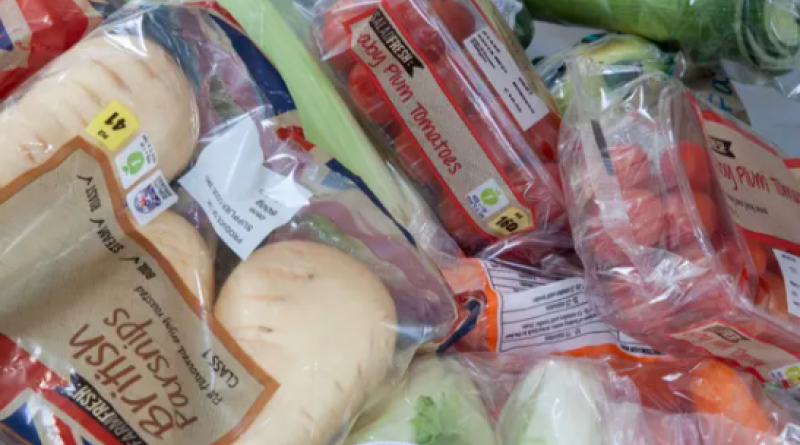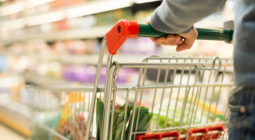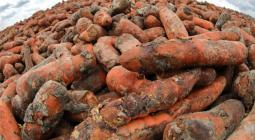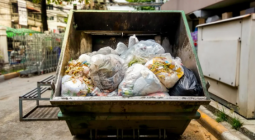Millions sign up to anti-food-waste apps to share their unused produce.

With the average UK family throwing out £730 of surplus items a year, eco-conscious consumers have found a hi-tech fix.
There is such a thing as a free lunch, it turns out, as long as you don’t mind too much what it is. Tamara Wilson found hers a few streets away from her west London home – and as well as picking up some unwanted bread and fruit that would otherwise be thrown away, she made a new friend.
Wilson* is one of 3.4 million people around the world using an app designed to encourage people to give away rather than throw away surplus food. “It’s such a small thing, but it makes me feel good and my neighbour feel good. And a lot of small acts can end up making a big difference,” she said.
The last few years have seen an explosion in creative ways to tackle food waste by linking supermarkets, cafes, restaurants and individual households to local communities.
Olio, the app used by Wilson, saw a fivefold increase in listings during 2020, and the signs are that this “stratospheric growth” is continuing into 2021, said Tessa Clarke, its CEO and co-founder.
Too Good To Go, where consumers pay a heavily discounted price for food and meals that would otherwise be discarded, has seen 4.5 million downloads of its app in the UK, and 34 million globally since it launched in 2016 – “and the numbers are growing”, said Paschalis Loucaides, UK managing director.
Other apps tackling food waste include Karma, which has 1.4 million users, and Hubbub, which has created a network of more than 100 “community fridges” in the UK in the past five years – a figure it hopes to double by the end of this year.
About a third of all food produced globally is wasted, according to the UN’s Food and Agriculture Organisation (FAO). Apart from the potential to eliminate hunger around the world, such waste makes a devastating contribution to the global climate crisis.
Almost 1.4 billion hectares of land – close to 30% of the world’s agricultural land – is dedicated to producing food that is never eaten; and the carbon footprint of food wastage makes it the third emitter of CO2 after the US and China, according to the FAO. Reducing food waste is one of the most effective ways of tackling the global climate crisis, says Project Drawdown, which ranks the impact of measures on reducing heat-trapping gases.
In the UK, also, about a third of all food is thrown away – half of it in people’s homes. “Each family throws away an average of £730 of food each year,” said Clarke.
Olio, she said, was an attempt to rectify this on a small, local scale. “The app connects people with others who have surplus food but don’t have anyone to give it to because so many people are disconnected from their communities.”
Users of Olio post images of surplus food that others in the neighbourhood might want. Olio also has a network of 24,000 volunteers who collect surplus food from local supermarkets and stores for app users to claim. “It feels good to share. It’s an example of positivity in a pretty grim world,” said Clarke.
Too Good To Go partners with cafes, restaurants, supermarkets, hotels and independent food retailers to create “magic bags” priced at about a third of the retail price, said Loucaides. “The customer picks up whatever is left over at the end of the day. We don’t pick and choose.”
Despite the success of the app, it was hard to make a dent in the huge scale of food waste, he added. “Even though we’re doing well, we’ve hardly scratched the surface. It’s very challenging.”
The UK’s first food waste action week took place earlier this month. Television chef Nadiya Hussain, who fronted the campaign, said: “Wasting food is a major contributor to climate change. And it isn’t just the leftovers on our plate to consider but the many resources that go into producing our food, like water and land. If we each make small changes, we’d dramatically reduce the amount of food that ends up in the bin.”
*Name has been changed
21 March 2021
The Guardian




